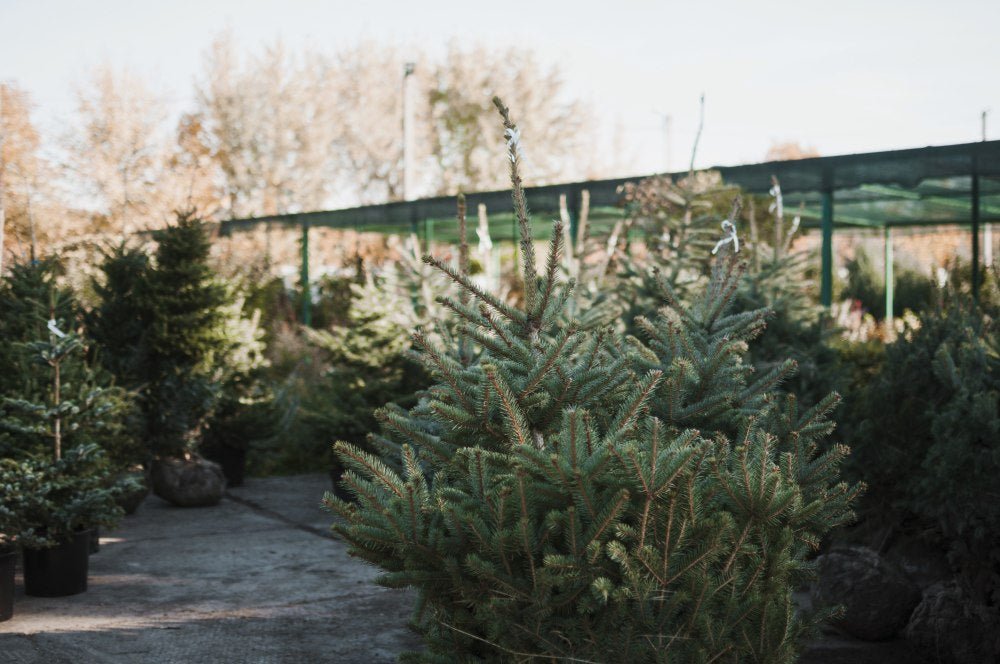How to Protect Newly Planted Trees and Shrubs in the Cold Season
By: Trevor Taylor
Author bio: Trevor Taylor is the Owner of Utahtreeco.com. Due to his upbringing in the beautiful forests of the Northeast, he became infatuated with the outdoors and the beauty of nature. They provide premium tree trimming services in Utah.
No one can deny that trees are a boon to us in more ways than one. They provide us with oxygen, shade, and food, and beautify our yard, thereby boosting our home’s value.
However, their tall and strong demeanor can make them seem invincible, and fool people into thinking that they don’t need much care and attention.
But the truth is, they do. This is especially true of young or newly-planted trees and shrubs.
As the cold intensifies, it can be challenging for your new plants and shrubs to grow healthy roots and attain a robust structure.
A sudden drop in the temperature, fluctuating moisture conditions, drying winds, and wildlife can wreak havoc on trees and shrubs. The worst part is, this damage may not become apparent until spring arrives when these plants break dormancy.
Fortunately, you can take certain preventive steps to help your newly-planted foliage survive the winter in good health. You can even consult a tree service company for trimming tips and tree pruning techniques to maintain tree structure. in Winter. Here are a few tips to avoid frozen roots, dead branches, and chewed bark this cold season.

Protecting New Trees from Extreme Cold
Winter frost can damage your newly-planted trees right from the roots all the way up to the canopy. To protect them from the harsh elements, it’s best to shield them from top to bottom. This is especially true of fruit trees and trees with bark as they’re more susceptible to sun-scalding.
This refers to the tree bark heating up on warm winter days, which causes the tissues underneath to break dormancy before time.
However, as the sun sets and the temperature plummets again, the tissues freeze and die. As a result, large depressions develop on the bark.
What’s more? Freezing temperatures also ruin a fruit tree’s buds, making it difficult for the tree to produce fruit in the spring.
Protecting your young fruit trees in the winter requires proactive action before the mercury starts to dip. Here’s what you can do.
- Aerate the soil in advance to loosen it, improve drainage, and prevent the roots from suffocating. Thereafter, fertilize the soil so your trees can get proper nutrition.
- Use a plastic tree guard or other opaque protective tree wraps to cover your tree’s trunk, safeguarding it from damage resulting from sun-scalding.
- A frost shield or an anti-desiccant can also help protect your trees. Spraying your tree canopies with a frost shield will help create a protective film over them that can minimize moisture loss.
Protecting New Shrubs from the Frost
Most homeowners plant shrubs around their yards as they not only add beauty to it, but also double as a privacy screen. However, your shrubs need to be in good health to serve their purpose. You can keep your trees protected in the winter by taking the following steps:
- Continue to water your shrubs thoroughly until the ground freezes.
- To lock in the moisture and provide insulation, cover your shrub’s bed in a three-to-four-inch layer of mulch.
- Wrap the shrubs in light and loose materials like burlap to protect them from the harsh winter wind.
Protecting Plants from Late Frost
As mentioned, trees find it extremely difficult to adjust to sudden temperature drops. It is even more challenging for newly-planted trees and shrubs to respond to weather changes if spring weather fluctuates and results in a late frost.
- Follow these steps to protect your trees and shrubs from unexpected weather changes.
- Track the weather forecast for any imminent drops in temperature.
- Thoroughly water your plants a day before the expected freezing day.
- Apply sufficient mulch to seal in moisture and prevent heaving. Heaving occurs when soil thaws and freezes over and over, causing the roots to rise above the ground and get exposed to the harsh weather. This is a common problem among young plants and trees as their roots are shallow.
- Cover the plants with burlap or a small, light bedsheet for added protection. However, ensure to remove the cover in the morning so the plant doesn’t overheat.
Safeguarding New Plants from Hungry Animals
Critters, rodents, and animals like deer, rabbits, and mice turn to bark of trees and shrubs as a source of food during winters as other food sources are in short supply. This results in immense damage to the foliage and can even kill it because the plant’s tissues are destroyed. In a nutshell, without adequate nutrition and protection, wildlife can easily kill your plants. If you live near a forested area or have wildlife presence in your neighborhood, you’ll need to do the following:
- Install a protective barrier around the lower parts of trees and shrubs to deter wildlife damage. You can use a metal hardware cloth for this.
- Place the barrier an inch or two beyond the trunk or the stem of the plant rather than attach it directly to the tree’s bark.
- You can also bury the bottom edge of the hardware cloth into the ground to prevent hungry animals from digging under it to reach the plant. If you don’t want to use hardware cloth, consider plastic tree guards as they’re effective wildlife barriers too.
“Wrapping” Up
Young trees and shrubs need extra care in the cold weather to make it to the next season. Taking certain timely preventive measures can help them stay robust and come out strong as the weather becomes agreeable later on. Meanwhile, do follow the above-mentioned tips to protect your newly-planted foliage in the winter to ensure that they get everything they need when they wake up in the spring.
Also read: How To Keep Your Plant Alive In Winter Season?


